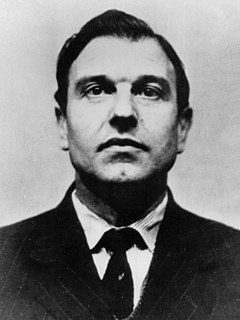A Quote by Lillian Hellman
Rebels seldom make good revolutionaries, because organized action, even union with other people, is not possible for them.
Related Quotes
Do you call the people in Los Angeles in the nineties - do you call them rebels or opposition ? They are rebels. They are not rebels even, they are beheading. This opposition, opposing country or government, by beheading ? By barbecuing heads ? By eating the hearts of your victim ? Is that opposition ? What do you call the people who attacked the two towers on the 11th of September ? Opposition ? Even if they're not Americans, I know this, but some of them I think have nationality - I think one of them has American nationality. Do you call him opposition or terrorist ?
Civilizations grow by agreements and accomodations and accretions, not by repudiations. The rebels and the revolutionaries are only eddies, they keep the stream from getting stagnant but they get swept down and absorbed, they're a side issue. Quiet desperation is another name for the human condition. If revolutionaries would learn that they can't remodel society by day after tomorrow -- haven't the wisdom to and shouldn't be permitted to -- I'd have more respect for them ... Civilizations grow and change and decline -- they aren't remade.
My feeling is that most political poetry is preaching to the choir, and that the people who are going to make the political changes in our lives are not the people who read poetry, unfortunately. Poetry not specifically aimed at political revolution, though, is beneficial in moving people toward that kind of action, as well as other kinds of action. A good poem makes me want to be active on as many fronts as possible.
It is your organized religions that have made it clear through their most sacred scriptures that cruelty and killing is an acceptable response to human frailty and human differences. This goes against every human instinct, but organized religion has reorganized human thoughts. Some humans have even been turned against their own instinct for survival. And so people go around maiming and killing each other, because they've been told quite directly that this is what God does to them--and what God wants them to do to each other.
You see Martin Luther King is dead and Huey Newton is not. And Malcolm X is dead and Bobby Seale is not. And Vernon Jordan was shot. The thing that revolutionaries, or even people who want to claim they're revolutionaries, often forget is that it doesn't make no difference what kind of wardrobe you wear, and if you speak up about Black people doing better you just risked your life.
It has not been possible to build that society. It set very high standards, because not only would life in the Soviet Union or in any other country which adopted that system, have to be just as good as in the Capitalist world, it would have to be better. So that other peoples, other nations would want to join it, and obviously we have failed in that.
Take the case of just actions; just punishments and chastisements do indeed spring from a good principle, but they are good only because we cannot do without them - it would be better that neither individuals nor states should need anything of the sort - but actions which aim at honor and advantage are absolutely the best. The conditional action is only the choice of a lesser evil; whereas these are the foundation and creation of good. A good man may make the best even of poverty and disease, and the other ills of life.
Everybody knows that if they're happy then usually the people around them are happy, or that people around them happy make them a little happier; that's a proved thing, like "I give to you and you give to me"; they all know that but they haven't thought about it to the point of every action that they do. That's what it is with every action that you do, there's a reaction to it, and if you want a good reaction then you do a good action, and if you want a bad one, then you punch somebody.
Besides, our action on each other, good as well as evil, is so incidental and at random, that we can seldom hear the acknowledgments of any person who would thank us for a benefit, without some shame and humiliation. We can rarely strike a direct stroke, but must be content with an oblique one; we seldom have the satisfaction of yielding a direct benefit, which is directly received.




































